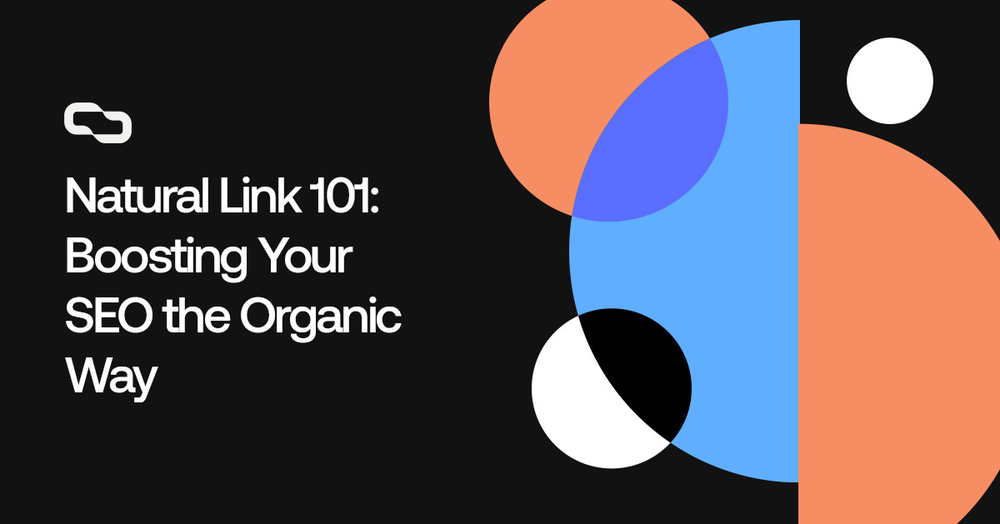Get links on brand new relevant articles for a boost of Authority and Relevance that’ll catapult your SEO. Our links include both DR and Traffic, so you don’t have to choose between one or the other.

If you’re new to SEO, you probably heard terms like “high-quality guest posts” and “cheap niche edits” quite often.
But what do these terms really mean? And what type of link is better for your site?
If you’re looking for a detailed answer, you’re just in the right place.
In this article, I’ll tell you the difference between guest posts and niche edit links.
But before we get into that, let’s first understand how Google interprets backlinks.
The 3 Backlink Signals
Before going on a link-building spree.
First, you need to understand why high-quality backlinks are important for Google.
Backlinks provide 3 key signals to search engines:
- 1.Relevance
- 2.Authority
- 3.Power
Each one of them is crucial for higher rankings.
And this section will get into why they are so important.
1. Relevance
Search engines don’t read a document and be like:
“Yeah, this page is about the best protein powder for bulking. Let’s rank it for that term.”
It just can’t.
Instead, it looks at cues to understand the overall topic of the page.
Here is a simplified example of how algorithms read a document:
Peep boob, I’m the Google crawler, you can call me Big G.
I see that you have a new page. I’ll try to find out what this document is about.
Hmm, it looks like you’re mentioning the word “protein” quite a lot.
Perhaps this article is about protein.
I have absolutely no clue, but I’ll figure it out, no worries.
Ok, you are using the word “powder” and you’re often using it in conjunction with the word “protein.”
It seems like this page is about protein powder.
Wow, I didn’t know that!
Hmm, you’re mentioning words like calorie dense, calorie surplus, weight gain, and many other terms that are associated with muscle bulking.
Your page contains a list of the best protein powders for bulking.
Obviously, this is a very simplified example.
But I hope it helped you understand that search engines rely on cues.
One of the cues that Google assigns a lot of weight to is backlinks.
If I’m getting a link from a page about protein powders, there is a chance that my page is also about protein powders, or at the very least, something related to the health & fitness topic.
If the link’s anchor text is “best protein powder”, Google picks on that and understands that your page has something to do with protein powders.
The more cues you give Google, the more it’ll be able to “understand” your page and rank it accordingly.
If you need to learn more about that topic, make sure to check our article on the different levels of link relevance. There is also a trick that allows you to maximize your link relevance.
2. Authority
Link authority is an indicator of trust.
Let me ask you this:
Would you trust me with your life savings?
I hope you answered no because honestly, I don’t even trust myself with my life savings.
Now, what if the greatest investor of all time, Warren Buffet, told you that I’m the real deal — you’d be a lot more likely to trust me, right?
Well, Google works in a similar way.
They see high-quality links as votes of trust.
Getting backlinks (recommendations) from relevant websites that Google trusts makes you a trustworthy site by association.
So it’d be more willing to trust the information you’re providing — especially for Your Money Your Life topics (topics like finance, legal advice, and health.)
The best representation we have today for trust is ahrefs Domain Rating (DR).
It’s a score that goes from 0 to 100, with 100 being the most trustworthy.
So in short, the higher the website DR, the more authority signals a backlink from it will give.
3. Power
Power, often referred to as juice or PageRank, is what moves you up the rankings.
Imagine your web page as a container and backlinks as faucets funneling juice in and out of the container.
The more juice you have in your container, the more powerful your page will be, and the higher it’ll rank.
The amount of juice you get from each link depends on 3 factors:
- 1.The linking website’s link popularity (domain authority).
- 2.The backlinks of the linking page.
- 3.The number of external links a page has.
The higher the domain rating, the more powerful the link will be.
In other words, the link gets its power from the domain itself.
The other way backlinks get their power is from the backlinks of the page.
Think of this: If a page has plenty of backlinks, its container must be filled with juice, thus, a link from it will be more powerful.
Similarly, if a page has many external links (links to other websites,) its juice will be distributed among all these links, resulting in less juice for your website.
What Are Guest Posts?
- . Relevance: 5/5
- . Authority: 4/5
- . Power: 2/5
Guest posts are articles you write for other websites, often in exchange for a backlink in the content and/or the byline of the article.
These white-hat links look the most natural to Google, so you can build many guest post links without risking a penalty.
Guest post links score 5/5 in relevance because you get to choose the website, the article topic, and the anchor text of your link.
They score 4/5 in authority because there are plenty of high-authority websites that accept guest posts and you can cherry-pick the best ones.
In terms of power, a guest post link only scores 2/5 because you’re getting contextual links from a brand-new web page that doesn’t have any backlinks pointing to it.
All the link juice comes from the domain itself via internal linking.
However, you can always power up these links using tier 2 backlinks.
Another problem with guest posts is that authority websites often have strict publishing guidelines.
This means that you need expert writers to craft these posts.
And such writers aren’t cheap.
What Are The Advantages of Guest Posts?
- . Looks natural to Google.
- . Plenty of relevant opportunities to choose from.
- . Full control over the page topic and anchor text.
What Are The Disadvantages of Guest Posts?
- . More expensive.
- . Not super powerful.
How to Build Guest Post Links
1. Dive Into Research
First things first, you gotta start with some detective work.
You’re looking for blogs that not only align with your niche but are also keen on publishing guest posts.
How do you find these hidden link-building gems?
Start by reverse engineering your competitors.
Plug them into a guest post-link-building tool, such as ahrefs or semrush.
Navigate to the backlinks tab, and export all their guest blogging links.
Another approach could be using search operators in Google like “your niche + write for us” or “your niche + guest post guidelines.”
2. Pitch Like a Pro
Now, don’t just barge in with a “Hey, publish my post, will ya?” That’s a no-go.
Craft a personalized guest post outreach email to the website owner or the editor.
Here’s the kicker: show them you actually know what their blog is about.
Mention a recent article you liked and share a brief pitch for your guest post that fits their audience.
Remember, it’s not about you; it’s about what you can offer to the target site.
3. Create Stellar Content
Once you get the green light, it’s time to shine.
Your blog post should not just be good; it should be “Wow, we need more of this!” good.
Provide unique insights, actionable tips, or a fresh perspective on a topic.
And please, make it engaging – nobody wants to read a textbook.
Use a conversational tone, throw in some humor if appropriate, and keep the reader hooked till the last word.
4. Fine-Tune Your Backlink
Here’s where your SEO hat comes on.
Seamlessly integrate a backlink to your own website within the guest post.
The link should feel natural. Ideally, link to a relevant piece on your site that adds value to the reader.
Also, don’t forget to optimize the anchor text to reflect the keywords you’re targeting.
5. Follow up and Foster Relationships
After your post is published, don’t just disappear into the night.
Promote the post on your social media, engage with any comments, and thank the host blog for the opportunity.
Building a relationship with the site owner can open doors for more guest posting opportunities and even collaborations in the future.
6. Rinse and Repeat
Guest posting is not a one-and-done deal. It’s about consistency.
Keep the momentum going by continuously looking for new guest posting opportunities and refining your approach based on what works.
Remember, each guest post is a stepping stone towards establishing your authority in your niche and improving your SEO.
What Are Niche Edits?
- Relevance: 2/5
- Authority: 3/5
- Power: 4/5
A niche edit or a link insertion is a link you build on an existing page.
This link-building strategy starts by scouring the internet for pages with plenty of backlinks pointing to them.
You try to pick the ones that are most relevant to your website, and then you contact the site owners asking them to “edit” the article — hence the name niche edits — and link to you.
For niche edits, you can choose the anchor and maybe add a few sentences around your link to make it look contextual, not forced.
However, this isn’t enough relevance, so I give it 2/5.
In terms of authority, I give it 3/5 at best because there aren’t many relevant opportunities out there, and most authority websites don’t accept niche edits.
Now, the main reason we obtain niche edit links is to juice up our pages.
They score 4/5 in power, as these links have a lot of link juice and can really move you up the rankings.
However, you can’t build many niche edits without looking spammy, so you must use them carefully with optimal backlink velocity in mind.
What Are The Advantages of Niche Edits?
- Cheaper, as it doesn’t require experienced writers.
- Very powerful and can really move the needle.
- Help new pages get indexed faster.
What Are The Disadvantages of Niche Edits?
- Finding relevant opportunities can be challenging.
- Can’t build many of them.
How to Build Link Insertions (Niche Edits)
1. Start With Strategy
Your first step is to identify high-value pages within your niche that already have strong authority and traffic.
Use tools like Ahrefs or SEMrush to scout for pages with a high URL Rating (UR) and relevant content.
Look for comprehensive articles yet might be missing a piece of information or a resource that you can provide.
2. Craft a Compelling Outreach
Your outreach should be as tailored and personal as possible.
Begin by complimenting the content you’re reaching out about, highlighting what you found particularly valuable.
Then, segue into how your content could add even more value to their piece.
Be specific about where your niche edit link could fit and how it enhances their content.
Remember, you’re proposing a mutual benefit, not just asking for a favor.
3. Provide Value-Added Content
For a link insertion to be successful, it should not only fit seamlessly into the existing content but also add real value.
This might involve suggesting a minor update or addition that makes the content more comprehensive.
Offer clear, concise content that can be easily integrated into the existing article.
This could be a statistic, a case study, an infographic, or an expert quote that enriches the original piece.
4. Negotiate and Agree on Terms
Sometimes, webmasters may request a fee for link insertions, or they might want content in exchange.
Be prepared to negotiate terms that are beneficial for both parties.
Ensure that any financial transactions are transparent and agree upon how the link will be inserted.
It’s important to keep the integrity of both your site and the host site in mind.
5. Stay Ethical and Transparent
While pursuing link insertions, always aim for transparency and ethical practices.
Ensure the content surrounding your link is relevant and valuable to the reader.
Avoid spammy practices or sites that don’t align with your brand values.
Quality over quantity always wins in the long run.
6. Monitor and Measure The Impact
Once your link has been inserted, the work doesn’t stop there.
Keep an eye on the performance of the link in terms of traffic and rankings.
Use tools to monitor the backlink profile and see how this new link contributes to your SEO goals.
This data can help you refine your link-building campaigns and target more effective link-insertion opportunities in the future.
FAQs
Is Guest Posting Good for SEO?
Guest posting is good for SEO. It helps in acquiring backlinks from reputable sites, enhances brand visibility, and drives referral traffic, in addition to many other benefits.
Do Niche Edits Work?
Niche edits work, as they provide contextual backlinks from established pages, potentially improving search engine rankings. However, it’s important to ensure relevance and authenticity to avoid penalties.
What Is the Difference Between Guest Posting and Blog Posting?
Guest posting involves writing and publishing an article on someone else’s website or blog. In contrast, blog posting refers to publishing articles on your own blog.
Conclusion
The key to successful link-building is to have a natural-looking backlink profile.
This means that you need a mix of guest posts and niche edits in addition to other types of backlinks, such as web 2.0, images, and PR links.
The exact distribution differs from niche to niche and is based on your current backlink profile.
If you need help figuring out the type and quantity of links you need to get to the top of Google, feel free to talk to one of our link-building specialists.
Our team will conduct a backlink analysis on your behalf, find the weak points, the easiest wins, and make a custom backlink package to get you the best return on your investment.
Find out your exact cost of ranking for your dream keyword
Find out nowLet’s get you ranking now
If you want the team at Get Me Links to help you get more traffic
Book a call NOW Back to Blog
Back to Blog 12 Minutes Read
12 Minutes Read

![How to Conduct a Competitor Backlinks Analysis [With Examples]](https://getmelinks.project-demo.info/wp-content/uploads/2024/06/How-to-Conduct-a-Competitor-Backlinks-Analysis.jpg)
